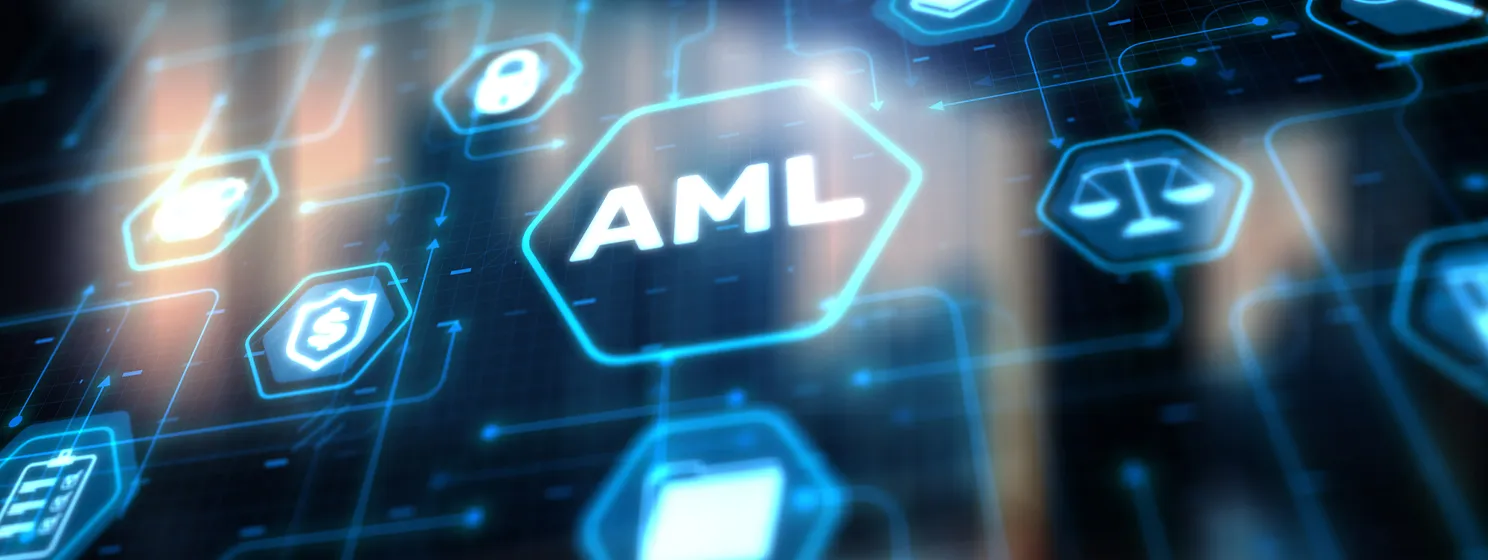|
Getting your Trinity Audio player ready...
|
America’s securities regulator shows no sign of backing off its fights with law-flouting ‘crypto’ operators despite uncertainty over how November’s election plays out.
On October 16, the Securities and Exchange Commission (SEC) filed a proposed amended complaint in its longstanding legal fight with the parent companies of the Binance digital asset exchange, its U.S. offshoot Binance.US, and Binance founder Changpeng ‘CZ’ Zhao. (For simplicity’s sake, we’ll refer to the defendants as ‘Binance’ going forward.)
The SEC filed its suit over a year ago, charging the companies with selling unregistered securities, masking manipulative trading on Binance.US, and allowing U.S. customers to illegally access the Binance.com site. The SEC accused Binance and CZ of perpetrating “an extensive web of deception, conflicts of interest, lack of disclosure and calculated evasion of the law.”
The SEC previewed the gist of the 201-page amended complaint last month, seeking to “address the factual pleading deficiencies” in the June 28 ruling by Judge Amy Berman Jackson of the U.S. District Court for the District of Columbia and to “further address certain defense arguments challenging the SEC’s claims.”
That June ruling saw Berman decline Binance’s motion to dismiss the bulk of the SEC’s charges, although she did dismiss the charge that Binance’s role in the (now defunct) BUSD stablecoin partnership with Paxos Trust represented an investment contract between the exchange and its customers.
Berman also partially dismissed charges related to Binance’s initial coin offering (ICO) of its in-house BNB token and the post-ICO ‘secondary’ sales of BNB to customers on exchanges. Regarding the latter charge, Berman cited a different federal court’s ruling that ‘secondary’ sales of Ripple Labs’ XRP token on exchanges didn’t violate securities law.
In response, the SEC’s amended complaint builds on its original ICO references by adding the phrase “initial exchange offerings” (IEO). This is described as “typically, the initial distributions of the crypto asset by the issuer or promoter to investors using trading platforms as the primary means of distributions.” The SEC singles out Binance’s Launchpad, “a program Binance explicitly designed for issuers to engage directly in capital-raising distributions of their crypto assets” via the exchange.
The SEC notes that as recently as September 5, Binance’s website describes its prominent role in the IEO process, letting token-issuing projects focus on development “while we handle the marketing and exposure to our user base.” The SEC argues that the tokens’ presence on Binance leads buyers “to reasonably expect profits from the expanded presence of the crypto assets on trading platforms.”
The SEC hasn’t given up on labeling BNB a security, as the amended complaint included a lengthy new section on Binance’s efforts to promote and sell BNB both to its staff and outsiders, as well as its promotion of Binance’s role in boosting BNB’s value. Binance also offered BNB to staff as “an elective form of salary payment,” which the SEC claims Binance promoted as the equivalent of stock options and an investment in the exchange’s future.
The SEC also seeks to revive the dismissed charge against Binance’s Simple Earn program, in which customers ‘lent’ tokens to Binance in exchange for simple interest. Berman’s June ruling said the SEC failed to demonstrate that customers understood the interest came from Binance’s “managerial or entrepreneurial efforts.”
In response, the SEC notes how Binance promoted Simple Earn as ‘passive investing’ that allowed a “hands-off approach to managing their portfolios.” Binance told Earn customers that their assets would be pooled with others’ assets, with Binance deciding how those assets are deployed.
It ain’t just BNB
Following Berman’s partial dismissal of the BNB charge in June, a hearing was held in July in which SEC and Binance attorneys debated whether 10 other tokens—ADA, ALGO, ATOM, AXS, COTI, FIL, MANA, MATIC, SAND, and SOL—cited in the SEC’s original complaint were still part of the suit. The amended complaint retains references to all 10 tokens and cites details on how the tokens were promoted by Binance on its platforms.
“Statements and activity by the crypto asset issuers and promoters, as amplified and reinforced by Defendants as alleged herein, have led investors reasonably to expect profits based on the managerial or entrepreneurial efforts of others.” The SEC claims this expectation exists regardless of whether investors acquired the token via “initial token distributions” (including IEOs on Binance), though “issuer direct or indirect sales” including via market makers, or in “secondary market resales” on Binance.
However, the amended complaint expunges the “crypto asset securities” language that has annoyed some judges overseeing other SEC v crypto suits, which the SEC has acknowledged can be problematic. The SEC now uses the phrase “crypto assets that were offered or sold as securities,” with ‘securities’ encompassing “the full set of contracts, expectations, and understandings centered on the sales and distribution” of an asset (as defined by the Howey test).
Spelling counts
To the accusation that Binance engaged in unregistered securities sales, the SEC adds “and intermediatied [sic] transactions of those securities” on its platforms. In doing so, the Binance platforms “acted as broker-dealers, exchanges and clearing agencies” without registering as such with the SEC.
In separate instances, the SEC calls both Binance.com and Binance.US “an integral part of the markets for crypto assets, including those that are offered and sold as securities, and Binance fills these markets with information republishing and amplifying the issuer and promoter statements and activity.”
The SEC claims each platform “provides various investment-related information about the crypto assets available for trading, including on the trading page, similar to a broker’s trading platform in the traditional securities market.” This includes “statements touting [tokens] as investment opportunities in a common enterprise with the potential that the crypto asset may increase in value from the issuers’ and promoters’ efforts.”
Now what?
The current calendar for how this suit will proceed shows a post-discovery status conference scheduled for April 2, 2026—not 2025—so anyone hoping for a quick resolution to this brouhaha must resign themselves to years of additional eye-rolling.
While Binance/CZ struck a $4.3 billion legal settlement with several other U.S. federal agencies a year ago, the SEC was not a party to this settlement. CZ was recently released from a federal prison in California after being sentenced to four months for his role in Binance’s crypto crime wave.
Should Donald Trump return to the White House in January, the remainder of SEC chair Gary Gensler’s tenure could be shortened. Trump has publicly promised to fire Gensler “on day one” of his administration, and while that’s not technically within his presidential powers, Trump hasn’t met too many guardrails he can’t find some way of blustering through.
Should Trump appoint a ‘crypto-friendly’ exec to take Gensler’s place, it’s likely that most of the SEC’s ongoing prosecutions—including those against Coinbase (NASDAQ: COIN), Consensys, Cumberland, Hex, Kraken, Ripple, Robinhood (NASDAQ: HOOD), Uniswap and more—would be swiftly curtailed.
If you need an explanation for why Coinbase, Ripple, Andreessen Horowitz, Gemini’s Winklevoss twins, and others have been plowing millions of campaign financing dollars into the current U.S. election cycle, there you are.
I’m more of a Night Train man, myself
Speaking of Ripple, the SEC made good on its threat to appeal the recent $125 million judgment it ‘won’ against Ripple Labs. The SEC’s notice of appeal, filed on October 2, has yet to be followed by the public release of the actual appeal, but a ‘pre-argument statement’ was filed with the Second Circuit Court of Appeals on October 17.
In July 2023, Judge Analisa Torres of the District Court for the Southern District of New York ruled that ‘programmatic sales of the XRP token on exchanges weren’t securities transactions, but direct sales to institutional customers were.
However, that XRP ruling was swiftly rubbished in a separate SEC case involving a different company and a different federal judge. Yet another federal judge in yet another case later ruled that token sales on exchanges “plausibly” resemble unregistered securities transactions.
In August 2024, Torres ordered Ripple to pay $125 million to atone for those unregistered institutional sales, but that was a fraction of the $2 billion penalty the SEC had sought, allowing Ripple to claim victory.
The SEC’s pre-argument filing says Torres “erroneously granted partial summary judgment in favor of defendants concerning Ripple’s offers and sales of XRP on digital asset trading platforms.” The SEC also challenges Torres’ view of the role that CEO Brad Garlinghouse and co-founder Chris Larsen played in “aiding and abetting” those offers and sales.
The SEC is similarly targeting “Garlinghouse’s and Larsen’s personal offers and sales of XRP, and Ripple’s distributions of XRP in exchange for consideration other than cash. These issues are to be reviewed de novo [aka over again].”
Garlinghouse tweeted his delight that the SEC sought to challenge Torres’ decisions, allowing the Second Circuit to consider the suit’s overall legal foundation. Garlinghouse believes this allows the Second Circuit to “either affirm Judge Torres or expand her ruling.” (There are other potential outcomes, but Garlinghouse likely doesn’t want to dwell on those negatives.)
On October 10, Ripple Labs filed a notice of its intention to file a cross-appeal seeking clarity on whether Torres’ August 7 judgment contains any legal or procedural errors. Ripple’s chief legal officer, Stuart Alderoty, explained that the strategy is “to ensure nothing’s left on the table.”
Here again, the wheels of justice will move at a glacial pace, with the process of filing briefs and reply briefs expected to continue through next July. By that time, if there’s anything left on the table, it’ll be bits of our skulls from banging our heads against it in frustration.
Watch: Teranode is the future of the Bitcoin network

 05-08-2025
05-08-2025 





